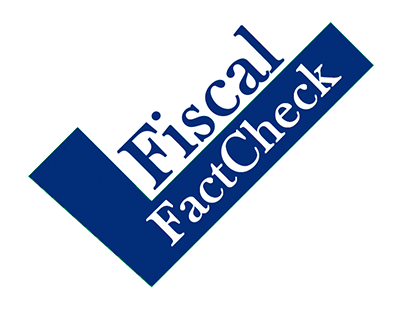Has Debt Gone Down By $12 Billion Since Trump Took Office?
On Twitter, President Trump claimed the national debt decreased by $12 billion during his first month in office, as opposed to increasing during President Obama's first month. While the numbers are correct, the small decrease in the debt since President Trump took office is primarily due to reductions in government cash-on-hand as well as short-term fluctuations. The statistic obscures the longer-term trend of a significantly worse fiscal situation now than when Obama took office.
The media has not reported that the National Debt in my first month went down by $12 billion vs a $200 billion increase in Obama first mo.
— Donald J. Trump (@realDonaldTrump) February 25, 2017
The numbers, first reported by Gateway Pundit and repeated by Herman Cain on Fox News shortly before Trump's tweet, are true, but lack context. The gross national debt for February 21st was $19.935 trillion, a $12 billion drop from the debt of $19.947 trillion on Inauguration Day. Using the latest figures for February 27th, the gross national debt is currently at $19.931 trillion, $16 billion lower than Inauguration Day.
The small decrease is a short-term fluctuation. The debt goes up and down on a daily and monthly basis based on that month's specific revenues and when the government's bills come due. For instance, the Congressional Budget Office guessed that the increase in January's small surplus might be due to companies delaying more year-end bonuses into January (so taxes that are normally paid in December would be paid in January).
While the debt hasn't increased, the Treasury has been spending down its cash surplus, which was $382 billion on Inauguration Day and $187 billion yesterday – a drop of almost $200 billion. In contrast, the Treasury's cash balance slightly increased during Obama's first month.
Despite the short-term drop in debt, the government is expected to spend $559 billion more this year than it takes in, adding to the debt. Annual deficits are projected to increase to $1 trillion by 2023, and over the course of the decade debt is projected to grow by over $10 trillion.
It's true that in Obama's first month, the debt had increased by $212 billion. However, neither President affected spending or revenues in their first month. The changes reflect legislation that had been passed before either President took office, as well as the very different fiscal and economic situation when Obama took office. The beginning of the Great Recession depressed tax revenues and increased safety net spending, while TARP (the "bank bailout" bill) had just been enacted in October 2008. The American Recovery and Reinvestment Act (ARRA, or the "stimulus bill") was enacted on February 17th, near the end of Obama's first month.
The gross national debt of almost $20 trillion is not the best metric for measuring the nation's fiscal health, since it doesn't consider the economy's ability to handle debt. Most economists prefer to look at the debt held by the public as a share of the economy. Under that measure, debt is projected to increase from 77 percent today to 89 percent by 2027.
The debt has fallen by $12 billion in Trump's first month of office, but that represents normal fluctuations in debt and the fact is most costs have come out of Treasury's cash balances, not any policy choice by the Trump Administration.
Our Rating: Lacks Context


